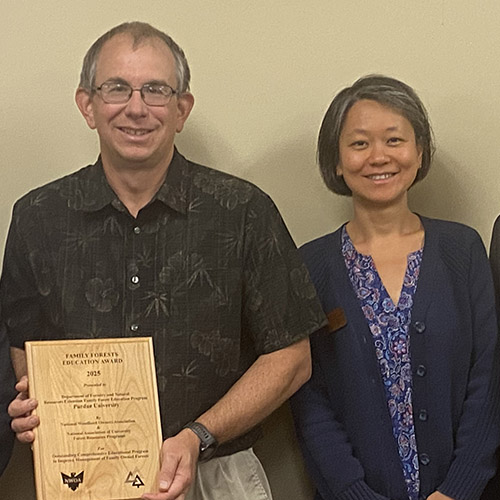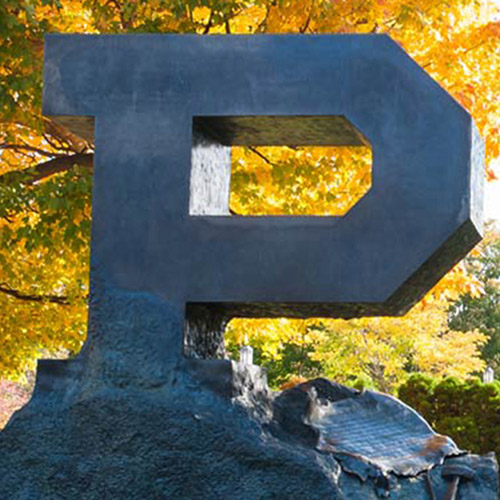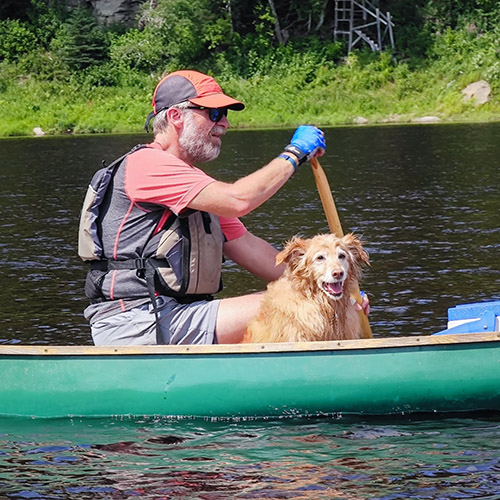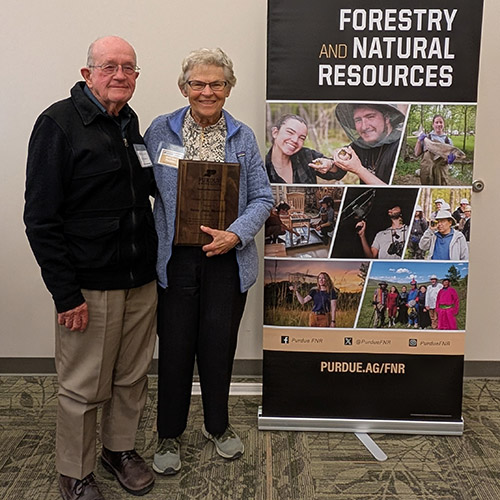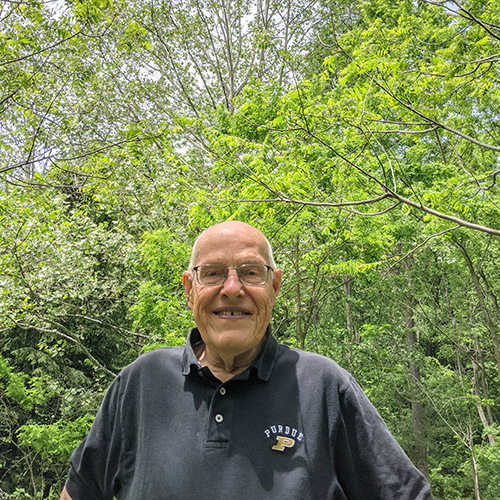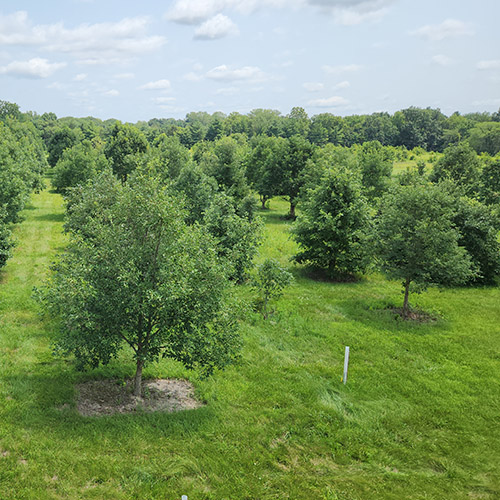Research - Forest Science
Advance basic knowledge of forest ecosystems, as well as the physiology, genetics, and growth of hardwood trees, to provide for the health and sustained productivity of the forests of the Central Hardwood Region, both in rural and urban settings.
Faculty
Dr. Songlin Fei
Spatial analysis and pattern recognition, invasive species distribution modeling and forest ecosystem dynamic modeling
Dr. Morgan Furze
Tree physiology and ecology, carbohydrate reserve dynamics, responses to global change
Dr. Matt Ginzel
Chemically mediated host location and colonization behavior of wood-boring insects
Dr. Brady Hardiman
Ecosystem responses to anthropogenic modification including disturbance, management, land-use change associated with urbanization, remote sensing, and ecosystem modeling.
Dr. Douglass Jacobs
Forest tree regeneration including nursery culture, outplanting and early stand management
Dr. Michael Jenkins
Effects of invasive species on ecosystem structure and function, forest ecosystem response to disturbances
Dr. Insu Jo
Plant ecology, forest community dynamics, ecosystem responses to disturbance and climate change
Dr. Rubab Saher
Digital forestry, urban hydrology, remote sensing, sustainable landscapes, groundwater ecosystems
Dr. Michael Saunders
Disturbance-based silviculture/ecological forestry, restoration ecology in forested systems
Dr. Jianmin Wang
Digital forestry, remote sensing, land phenology, tree mortality, forest disturbance
Dr. Patrick Zollner
Behavioral ecology of ecological landscapes, forest management in changing landscapes, animal movements
Areas of Specialization
- Forest Ecology
- Forest Soils
- Silviculture
- Tree Physiology
- Urban Forestry
Learn More About Our Research
View our nine research areas along with our world-class faculty.
There has been substantial debate in recent months about how to best manage Indiana’s state forests. Unfortunately, some information presented about forest management on the web, in letters to state government, and in op-ed articles to newspapers and other outlets has included statements that are not consistent with results from decades of forest and wildlife research. We believe that the public-policy debate on forest management in Indiana would benefit from clarification of key concepts and what research findings have generally concluded.
FNR research centers seek to support and enhance the research and partnership enterprise at Purdue University. The centers are valued and encouraged at Purdue as they create a venue for faculty to come together to pursue common goals. Forestry and Natural Resources have faculty and staff involved in six centers here at the University.
The Department of Forestry and Natural Resources maintains an impressive collection of state-of-the-art research and education facilities. These labs, green houses, and educational facilities are a fundamental component that enables our faculty and students to learn, make new discoveries, and engage our clients in using these discoveries to sustain our nation’s ecosystems and natural resources.
The mission of the Department of Forestry and Natural Resources is to develop and disseminate knowledge in the natural resource sciences associated with the protection, management, and sustainable use of terrestrial and aquatic ecosystems. One way the department accomplishes our mission is by owning and managing 24 properties located throughout the state to provide opportunities for research, extension, and education that achieves sustainable use of our natural resources.

